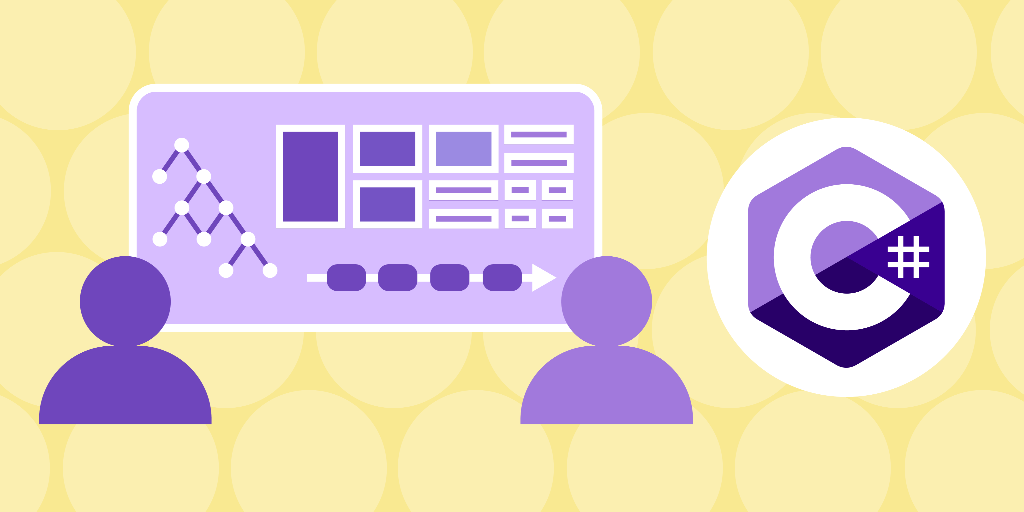
Introduction
“Decode the Coding Interview in C#: Real-World Examples – AI-Powered Course” is an online preparation course aimed at software engineers who want to perform well in C# technical interviews. Marketed as the “ultimate guide” and developed by FAANG engineers, the course promises concentrated, interview-focused practice that leverages real-world questions and AI-powered feedback to make you interview-ready in a short time.
Product Overview
Manufacturer / Creator: FAANG engineers (course authoring team)
Product Category: Online technical training / interview preparation course
Intended Use: Prepare for C# coding interviews — learn patterns and common problem-types, practice coding problems with real-world context, and get targeted feedback to improve speed and correctness for technical interviews.
The course positions itself as a time-efficient option for mid-level to senior-level candidates who need practice on interview-style problems in C#, but it is also useful for developers moving from other languages into C# interview preparation.
Appearance, Materials, and Overall Aesthetic
As a digital product, the “appearance” refers to its user interface, content format, and presentation style. The course uses a contemporary, minimal UI with clear typography and syntax-highlighted code snippets. Video lectures are accompanied by slide decks, downloadable notes, and interactive code cells or embedded editors for hands-on practice.
Materials typically include:
- Pre-recorded video lessons with instructor narration
- Code examples and templates in C# with syntax highlighting
- Problem sets and downloadable cheat sheets
- AI-driven feedback windows or chat assistants embedded in the lesson pages
Unique design elements include a focus on “real-world examples” (problems contextualized as tasks an engineer might see on the job) and an AI assistant that provides hints, code-review style feedback, or suggested optimizations. The visual aesthetic favors a dark-mode friendly code editor alongside light-themed lesson text — practical for long practice sessions.
Key Features and Specifications
- AI-Powered Feedback: Automated hints, error explanations, and suggested improvements for submitted solutions.
- Real-World Example Problems: Problems framed in practical scenarios (system behavior, API usage, performance considerations) rather than abstract puzzles only.
- C#-centric Coverage: Solutions and explanations use C# idioms, common .NET patterns, and language features relevant to interviews (LINQ, async/await, collections, memory considerations).
- Interactive Code Exercises: Embedded editors or downloadable templates to run and test solutions.
- Mock Interview Modes: Timed exercises and simulation modes to practice under interview conditions (where available).
- Lecture + Practice Format: Short conceptual videos followed by targeted practice problems and walkthroughs.
- Progress Tracking: Dashboard for tracking completed modules, practice scores, and weak areas.
- Resource Pack: Cheatsheets, common patterns, and recommended study paths for fast preparation.
Experience Using the Course (Various Scenarios)
Short-Term / Crash Prep (a few hours to a few days)
The course’s modular lessons and AI hints make it suitable for condensed study. If you have limited time, you can focus on high-frequency problem types and the provided “cheat sheets.” The real-world framing and concise solutions help you quickly align on idiomatic C# approaches. The AI hints reduce time spent debugging trivial syntax issues so you can focus on algorithmic thinking.
Regular Study Route (several weeks)
Over a multi-week schedule, the course functions well as a structured curriculum. Video lessons explain trade-offs, and progressive practice builds pattern recognition. The embedded editor and test harnesses make it easy to iterate on solutions. Progress tracking helps identify weak areas (e.g., graphs vs. dynamic programming).
Translating Knowledge to Live Interviews
Timed mock interviews and real-world problem statements help bridge the gap between practice and live interview scenarios. The AI feedback is useful for post-mortem reviews: it points out edge cases you missed and performance pitfalls. However, it cannot entirely replace human mock interviews where soft skills and communication are evaluated.
Using the Course on the Go (mobile / tablet)
The course is primarily web-based. Reading lessons and watching videos on mobile is practical, but coding comfortably requires a laptop with a keyboard for longer practice sessions. The design is responsive, so quick reviews on a tablet are viable.
Pros and Cons
Pros
- AI-powered hints speed up learning and reduce time lost to syntactic mistakes.
- Real-world problems increase practical understanding and prepare you for job-context questions.
- Content crafted by FAANG engineers lends credibility and interview relevance.
- Clear C#-focused solutions, including idiomatic use of language and .NET features.
- Good mix of videos, interactive exercises, and downloadable resources for multiple learning styles.
- Progress tracking and timed practice help simulate interview pressure.
Cons
- AI feedback quality can vary — it’s helpful for common mistakes but sometimes offers generic suggestions for complex design trade-offs.
- Not a full substitute for live mock interviews or human code review focused on communication and design reasoning.
- Depth on very advanced system design or platform-specific enterprise topics may be limited (course emphasis is primarily problem-solving and algorithms in C#).
- Heavy coding practice is constrained on mobile devices; best used on a laptop/desktop.
- Course scope, pacing, and number of problems are not explicitly quantified in the public description — buyers looking for a guaranteed number-of-problems metric may want more detail before purchase.
Conclusion
Overall, “Decode the Coding Interview in C#: Real-World Examples – AI-Powered Course” is a strong, practical option for C# interview preparation. Its combination of FAANG-authored content, real-world problem framing, and AI-assisted feedback helps you focus on both correct implementations and practical considerations interviewers care about. The course is especially valuable for mid-career engineers and those switching to C# who need targeted, language-specific practice in a time-efficient way.
That said, it should be used as part of a broader preparation plan: complement it with live mock interviews, human feedback on communication and design reasoning, and deeper study for specialized system-design or platform-dependent roles. If you value practical examples and quick, directed practice with helpful automated feedback, this course is likely to be a worthwhile investment.
Product reviewed: Decode the Coding Interview in C#: Real-World Examples – AI-Powered Course




Leave a Reply